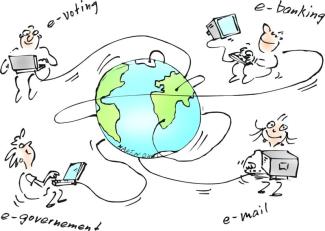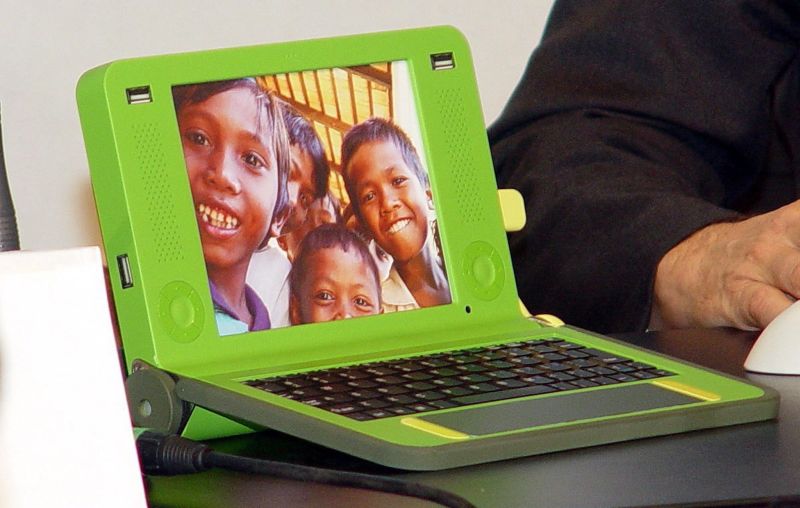Inequality
Building bridges

Thomas Piketty’s book (2014) about inequality in the 21st century shows that the capital gains the top 10 % earn are systematically rising faster than wages. As a consequence, economic inequality is growing, and personal wealth is less and less an indicator of hard work and achievement.
It is questionable, however, whether Piketty’s proposed global wealth tax, on its own, could change matters in the digital age. Particularly in times of slow growth and high unemployment, it is necessary to encourage innovation, competitiveness and, above all, the creation of high-quality jobs for the digital age. Standard economic policies – whether redistribution or austerity – cannot suffice.
Economic growth is currently stalling in several large developing and newly-industrialising countries. In many parts of the world, the global financial crisis has eliminated jobs and widened the gap between wealthy elites and the masses of other people.
In addition to the trend of capital accumulation that Piketty describes, another trend is likely to drive inequality further: the next wave of significant structural change has started thanks to intelligent machines and digitalisation. They will make many middle-class jobs obsolete and will widen disparities between people, regions and countries. However, they also open up new opportunities. Interdisciplinary approaches are needed to rise to these complex challenges.
Innovation and inequality
The USA leads the rest of the world when it comes to promoting innovation and digitalising business and society. Researchers and entrepreneurs in Silicon Valley or Massachusetts have a big head start with regard to the analysis of large volumes of data and machine learning.
Income and wealth inequality is sharply increasing in the USA and around the world as a result of these new technologies. As was the case during the industrial revolution, many old skills are becoming obsolete. Human labour is being replaced by machines and algorithms. Research concerning the internet and its impacts on society (Brynjolfsson and McAfee 2014, Frey and Osborne 2013, Lanier 2014) has emphasised the structural changes and threat of rising inequality in the digital age.
On the one hand, intelligent machines and algorithms can replace many jobs previously performed by the middle class in industrialised countries. On the other hand, multinational corporations in advanced nations are purposefully investing in the knowledge-based Industry 4.0.
Innovative approaches are needed to facilitate the active participation – and fair compensation – of people who do not belong to the small core of ambitious, well educated, technological and financial elites in the digital revolution. Most of the world’s people will have to acquire new skills such as programming, social-media literacy and coming up with interdisciplinary solutions.
Echo chambers and polarisation
The digital information flood is creating new problems of its own. Sandy Pentland (2014) from Media Lab of the Massachusetts Institute of Technology (MIT) has pointed out that too much virtual social interaction reduces productivity. Social media often become echo chambers that repeat the same information over and over again. As a result, productivity is being reduced. Face-to-face interaction of people with different backgrounds and knowledge is as important as ever.
Social media and personalised search engines may also contribute to deepen ideological divides. Renzo Lucioni (2013) and other researchers have shed light on political polarisation in the US. They showed that whereas Republicans and Democrats often cast the same votes in the US Senate in 1989, that has become ever rarer, and hardly happened at all in 2013. New technologies also seem to be hardening the fronts in political controversies, as is evident in social media debate in Turkey or Brazil, for instance.
All too often, discussions on technology, economic growth and social development stay isolated from one another. In practice, they need to complement one another in order to foster sustainable development (Hartmann 2014). Targeted efforts are necessary to promote the exchange of knowledge between different groups from the public, private and civil sector. On the upside, it is inspiring hope that there are several new initiatives aimed at integrating different perspectives and advancing interdisciplinary learning (see box).
Such steps are needed to reduce poverty and inequality in the long run. Income redistribution alone will not do. We have to develop understanding for one another and build bridges between different groups. Massive open online courses, big data, crowdsourcing, machine learning, hackathons and open- source software offer a host of opportunities for interdisciplinary learning and problem-solving. Unfortunately, few people have been able to take advantage of these opportunities so far.
Democratic attitudes and interdisciplinary skills must therefore be fostered. Different points of view must be understood and appreciated. Insights from development policy and cooperation can serve as models for interdisciplinary connections between economic, social and technological concerns.
Dominik Hartmann is the EU Marie Curie Postdoctoral Fellow at the Media Lab at the Massachusetts Institute of Technology and a research fellow at the chair of economics of innovation at the University of Hohenheim.
hartmado@mit.edu
http://www.hartmado.com
References and links
Brynjolfsson, E., and McAfee, A., 2014: The second machine age. New York: W.W. Norton & Company.
Frey, C. B. and Osborne, M. A., 2013: The future of employment: How susceptible are jobs to computerisation.
http://www.oxfordmartin.ox.ac.uk/downloads/academic/The_Future_of_Employment.pdf
Hartmann, D., 2014: Economic complexity and human development. How economic diversification and social networks affect human agency and welfare. New York: Routledge Studies in Development Economics.
Lanier, J., 2014: Who owns the future. New York: Simon & Schuster.
Lucioni, R., 2013: United States of Amoeba
http://www.economist.com/news/united-states/21591190-united-states-amoeba
Pentland, A., 2014: Social physics. How ideas spread – the lessons from a new science. New York: Penguin Press.
Piketty, T., 2014: Capital in the twenty-first century. Cambridge: The Belknap Press of Harvard University Press.
World Bank, 2016: World development report 2016: Digital dividends.
http://www-wds.worldbank.org/external/default/WDSContentServer/WDSP/IB/2016/01/13/090224b08405ea05/2_0/Rendered/PDF/World0developm0000digital0dividends.pdf








